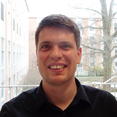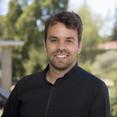New Horizons in High-Energy-Density Physics: Above the Schwinger Limit and Harnessing Cosmic Particle Acceleration
Hosted By: Short Wavelength Sources and Attosecond/High Field Physics Technical Group
07 March 2019 14:00 - 15:00
Eastern Time (US & Canada) (UTC -05:00)Join the OSA Short Wavelength Sources and Attosecond/High Field Physics Technical Group for a webinar discussing the "horizon physics" to be discovered with high intensity lasers and high energy densities.
First Sebastian Meuren will be presenting his talk ‘Reaching for the Brightest Light at SLAC's FACET-II.’ Recently, an international collaboration proposed to explore light-matter interactions under unprecedented extreme conditions at SLAC's FACET-II. Due to the large Lorentz boost of the FACET-II electron beam, the critical intensity of \sim 10^{29} W/cm^2 will be reached in electron-laser collisions. This facilitates experimental tests of state-of-the-art numerical QED Monte-Carlo codes, which are currently employed in simulations of future High-Energy-Density-Physics (HEDP) experiments. Studying QED cascades and producing electron-positron pair plasmas in laser-solid and seeded laser-laser interactions will require intensities \gtrsim 10^{24} W/cm^2, whereas FACET-II is able to probe similar physics already at \gtrsim 10^{20} W/cm^2. Further, the first laboratory measurement of vacuum birefringence is aspired.
Next Frederico Fiuza will present ‘exploring extreme laser-plasma conditions: from laboratory astrophysics to compact accelerators.’ The advent of high-intensity lasers is opening new frontiers in physics by triggering the possibility to explore in the laboratory extreme fields and high-energy-density states of matter that can otherwise only be found in astrophysical environments. This is enabling a better understanding of the highly nonlinear plasma processes involved in high-energy cosmic accelerators. Furthermore, it is leading to the development of advanced accelerator concepts for compact particle beams and radiation sources. Dr. Fiuza will discuss some of the recent advances and open challenges in this field.
About the Presenters:
Dr. Sebastian Meuren, Princeton University

Sebastian Meuren studied Physics at Heidelberg University (Germany) and graduated in 2015. Both his diploma and PhD thesis were completed in the research group of Honorarprof. Dr. C. H. Keitel at the Max Planck Institute for Nuclear Physics, in close collaboration with PD Dr. Antonino Di Piazza. Currently, he is a Postdoctoral Researcher in the group of Prof. Nathaniel J. Fisch at the Department of Astrophysical Sciences of Princeton University. His primary research interest is the nonperturbative strong-field regime of quantum electrodynamics (QED). As PI of an international collaboration, he will be leading an experimental campaign at SLAC's FACET-II, which aims at exploring light-matter interactions at and beyond the critical (Schwinger) field.
Dr. Frederico Fiuza, SLAC National Accelerator Laboratory

Frederico Fiuza is a Staff Scientist and the Theory Group Leader at the High Energy Density Science division at the SLAC National Accelerator Laboratory since 2015. He obtained his degree in Physics Engineering and his PhD degree in Plasma Physics from Instituto Superior Tecnico in 2007 and 2012, respectively. He subsequently became a Lawrence Postdoctoral Fellow at the Lawrence Livermore National Laboratory between 2012 and 2015, before joining SLAC. He is interested in the combination of massively parallel kinetic simulations and intense laser-driven experiments to explore a wide range of topics in laboratory and astrophysical plasmas, including particle acceleration, compact radiation sources, magnetic field amplification, collisionless shocks, and magnetic reconnection. Frederico has been awarded the Lawrence Fellowship in 2012, the European Physical Society PhD Research Award in 2013, the DOE Early Career Research Program Award in 2017, and the APS Thomas H. Stix Award in 2018.
